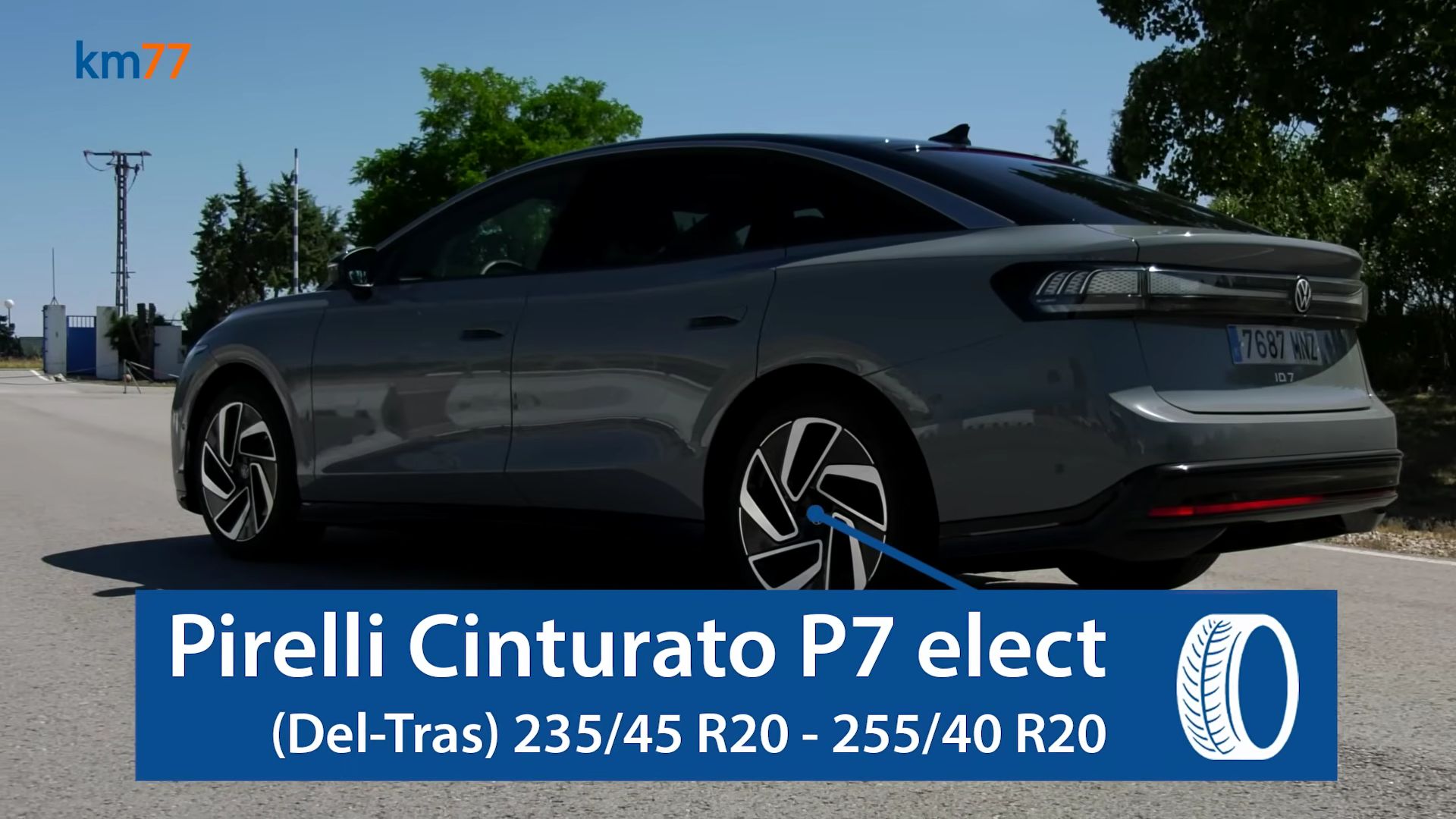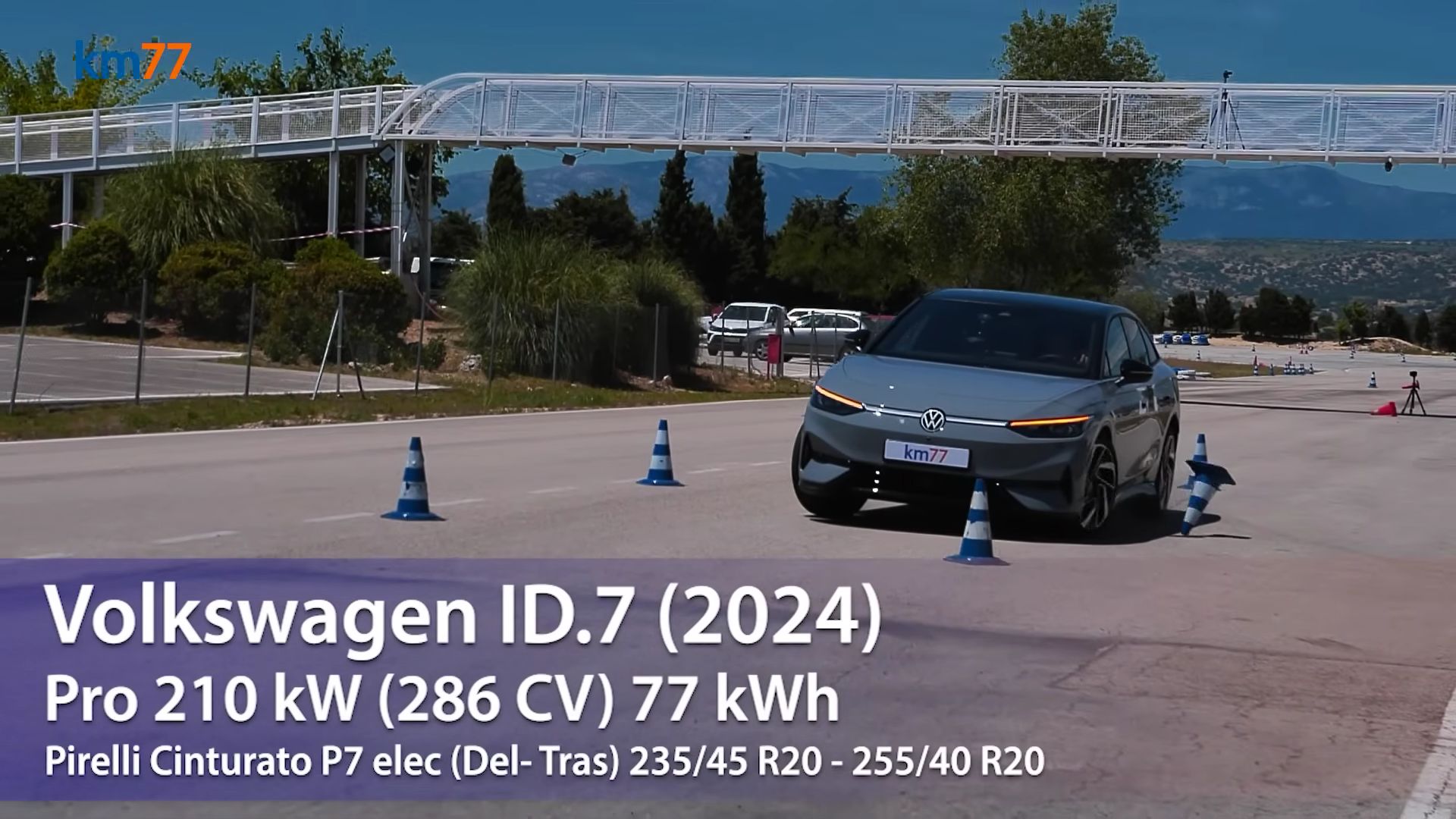The all-electric sedan’s rear-wheel drive configuration proved inadequate in mitigating pronounced understeer and excessive electronic stability control intervention. Weighing in at a hefty 2,172 kilograms, the vehicle’s substantial mass, significantly surpassing its plug-in hybrid Passat counterparts, exacerbated these handling issues.
Equipped with Pirelli Cinturato P7 Elect tires tailored for electric vehicles, which promise reduced rolling resistance and noise, the sedan still grappled with control. Despite wider 20-inch front and rear tires compared to the Passat, the electric sedan fell short of the rigorous 77 km/h moose test benchmark set by km77.

This indicates that the combination of weight, tire characteristics, and electronic systems failed to deliver the expected level of stability and agility. The Volkswagen ID.7 Pro, a zero-emission successor to the Passat, has shown mixed results in recent tests. While it was impressed with its slalom performance, matching the time of the significantly heavier Mercedes-AMG SL 63, its elk test results were disappointing.
The ID.7 Pro managed only 74 km/h on entry and 50 km/h on exit before instability, indicating less-than-ideal handling at higher speeds. Despite this, the car demonstrated agile dynamics in other tests, even outperforming competitors like the BMW i5 eDrive40.
However, it fell short of the Porsche Taycan GTS in slalom agility. Built on the MEB platform, the ID.7 is available as both a sedan and a more spacious estate variant called the ID.7 Tourer. While the all-wheel-drive GTX version offers more power, the standard ID.7 Pro’s launch in the US and Canada has been delayed due to market challenges.

